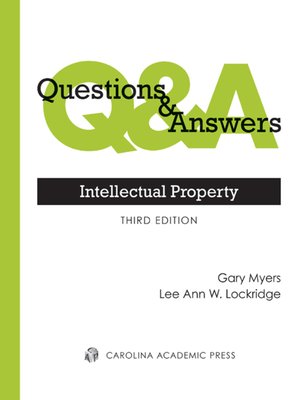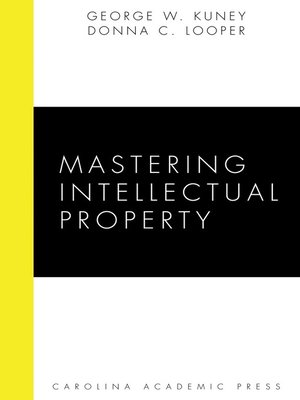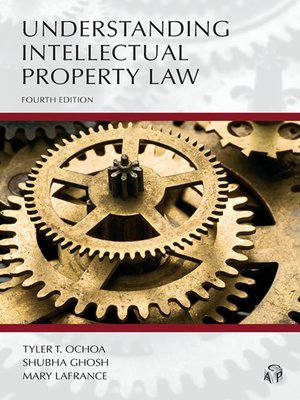Topics in Law & Technology
About
This Research Guide is intended to provide a starting point for research into the various ways in which law and technology intersect. In particular, this Guide comprises resources focused on Information and Data Privacy as well as Data and Cybersecurity. This Guide also features a selection of resources on a number of broad law-and-technology topics such as Artificial Intelligence (including ChatGPT/GPT-4, and algorithms generally), Social Media and the Law, the "law of the Internet," Biotechnology and the Law, as well as technology issues as pertaining to Environmental Law. Finally, due to the many ways in which Intellectual Property Law impacts and is, in turn, impacted by Technology, this Research Guide also includes a page of general resources in the overarching area of Intellectual Property. The user is invited to visit the Law Library's Intellectual Property Research Guide for additional and more specific resources in this doctrinal area.
The user should note that the materials featured in this Research Guide are intended to be suggestive, rather than prescriptive or comprehensive. That is, the intention is to present the user with an overview of the Law Library's collection in these areas, with the hope that one or more titles may spark curiosity about a particular topic. All materials listed here are available in the Law Library in print form, but in some cases electronic access may also be available. Accordingly, the remote/ online user is encouraged to check the Law Library's catalog to find out whether other editions/ versions are available.
Intellectual Property
Intellectual Property is a broad area of law, comprising three primary doctrinal areas and concerned with the legal protection of different types of 'creations of the mind'.
As defined by Black's Law Dictionary (11th Ed. 2019) the term INTELLECTUAL PROPERTY means/refers to:
"1. A category of intangible rights protecting commercially valuable products of the human intellect. • The category comprises primarily trademark, copyright, and patent rights, but also includes trade-secret rights, publicity rights, moral rights, and rights against unfair competition. 2. A commercially valuable product of the human intellect, in a concrete or abstract form, such as a copyrightable work, a protectable trademark, a patentable invention, or a trade secret."
Getting Started
The following study aids provide a general overview of the law of Intellectual Property. They include sections touching on Copyright Law, Patent Law, and Trademark Law.
NOTE: The links below will take the user to the Law Library's online study aids collection. The inclusion of a Call Number indicates that the Law Library also has the particular title in print, although the print resource may be an earlier edition of the title.
-
Acing Intellectual Property by This study aid uses outline-like checklists to lead law students through the analytical steps necessary to analyze intellectual property issues. The book covers trademark, patent, copyright, and trade secret law. Each chapter begins with a brief review of the important rules and concepts that govern a particular area of intellectual property law. The review material is followed by a checklist that provides students with a clear roadmap for answering intellectual property questions. Each chapter concludes with practice problems and solutions that illustrate how students can use the checklist to analyze intellectual property issues.
Call Number: online onlyISBN: 9781634602730Publication Date: 2018-04-04 -
Intellectual Property and Unfair Competition in a Nutshell by This guide offers a broad summary of the law of intellectual property (patents, copyrights trademarks, trade secrets, and a variety of other sui generis forms of protection for innovations and creativity) and the law of unfair competition (trademark infringement, passing off, trade disparagement, and deceptive advertising).It also touches on related fields of law, such as antitrust, consumer protection, regulated industries, and the law governing interference with contractual and noncontractual relations.
Call Number: online onlyISBN: 9780314280640Publication Date: 2012-11-13 -
Intellectual Property, Patents, Trademarks, and Copyright in a Nutshell by Authors emeritus professor Michael Davis and famed Harvard professor Arthur Miller provide authoritative coverage on the foundations of patents, trademarks, and copyright laws. Authoritative treatment of all relevant doctrines and the latest statutory and judicial changes, with up-to-date coverage provided by associate professor of legal research, Dana Neacşu. Text further addresses relevant torts, property, antitrust, regulatory, and federalism intersections with intellectual property law.
Call Number: online onlyISBN: 9781685619251Publication Date: 2023-08-07 -
 Questions and Answers: Intellectual Property
by
The questions and answers in this book cover the broad subject of "intellectual property" in a comprehensive way, targeted to an introductory or survey course. All of the major topics in this fascinating area of law are included--namely, trademark, the right of publicity, trade secret, patent, and copyright--and the coverage has been updated with major changes in the law through mid-2019. The key aspects of each of these areas are systematically addressed using the following organization--subject matter and validity, ownership and duration of rights, infringement and remedies, and defenses and limitations.
Call Number: KF2980 .M94 2020ISBN: 9781531015985Publication Date: 2020-04-01
Questions and Answers: Intellectual Property
by
The questions and answers in this book cover the broad subject of "intellectual property" in a comprehensive way, targeted to an introductory or survey course. All of the major topics in this fascinating area of law are included--namely, trademark, the right of publicity, trade secret, patent, and copyright--and the coverage has been updated with major changes in the law through mid-2019. The key aspects of each of these areas are systematically addressed using the following organization--subject matter and validity, ownership and duration of rights, infringement and remedies, and defenses and limitations.
Call Number: KF2980 .M94 2020ISBN: 9781531015985Publication Date: 2020-04-01 -
 Mastering Intellectual Property
by
Mastering Intellectual Property is a practical guide to the intricacies of trade secret, patent, copyright, moral rights, trademark, and related fields of intellectual property law. Less detailed than a multi-volume treatise, and aimed at an interested but novice audience, the book describes and then illustrates each of these separate but related areas of law, comparing and contrasting their distinct features, uses, benefits, and shortcomings. The book features clear statements of the applicable rules and standards and follows each with illustrative examples that demonstrate the application of the abstract law to concrete facts. The book is an indispensable aid and supplement to anyone seeking to master the broad spectrum of intellectual property law.
Call Number: KF2979 .K86 2009ISBN: 9781611633207Publication Date: 2009-01-01
Mastering Intellectual Property
by
Mastering Intellectual Property is a practical guide to the intricacies of trade secret, patent, copyright, moral rights, trademark, and related fields of intellectual property law. Less detailed than a multi-volume treatise, and aimed at an interested but novice audience, the book describes and then illustrates each of these separate but related areas of law, comparing and contrasting their distinct features, uses, benefits, and shortcomings. The book features clear statements of the applicable rules and standards and follows each with illustrative examples that demonstrate the application of the abstract law to concrete facts. The book is an indispensable aid and supplement to anyone seeking to master the broad spectrum of intellectual property law.
Call Number: KF2979 .K86 2009ISBN: 9781611633207Publication Date: 2009-01-01 -
 Understanding Intellectual Property Law
by
There have been a number of important developments in U.S. intellectual property law since the third edition of Understanding Intellectual Property Law was published. Congress enacted the Defend Trade Secrets Act of 2016 to provide a federal civil cause of action for misappropriation of trade secrets for the first time. It also enacted the Music Modernization Act of 2018, which extends the compulsory license for musical works by creating a blanket license for digital music providers and provides federal protection to sound recordings fixed before February 15, 1972. And, of course, courts continue to work through the implications of earlier statutory revisions, such as the landmark America Invents Act of 2011. The Supreme Court has remained active in reviewing intellectual property cases during the past four years, deciding eighteen patent cases, four copyright cases, and five trademark cases. In addition, the federal Courts of Appeals decided more than 1000 patent cases, 230 copyright cases, and nearly 300 trademark and false advertising cases during that time. Having been updated to reflect this new material, the fourth edition of Understanding Intellectual Property Law covers all of the intellectual property areas and issues likely to be addressed in an intellectual property survey course.
Call Number: KF2979 .C478 2019ISBN: 9781531015688Publication Date: 2020-03-25
Understanding Intellectual Property Law
by
There have been a number of important developments in U.S. intellectual property law since the third edition of Understanding Intellectual Property Law was published. Congress enacted the Defend Trade Secrets Act of 2016 to provide a federal civil cause of action for misappropriation of trade secrets for the first time. It also enacted the Music Modernization Act of 2018, which extends the compulsory license for musical works by creating a blanket license for digital music providers and provides federal protection to sound recordings fixed before February 15, 1972. And, of course, courts continue to work through the implications of earlier statutory revisions, such as the landmark America Invents Act of 2011. The Supreme Court has remained active in reviewing intellectual property cases during the past four years, deciding eighteen patent cases, four copyright cases, and five trademark cases. In addition, the federal Courts of Appeals decided more than 1000 patent cases, 230 copyright cases, and nearly 300 trademark and false advertising cases during that time. Having been updated to reflect this new material, the fourth edition of Understanding Intellectual Property Law covers all of the intellectual property areas and issues likely to be addressed in an intellectual property survey course.
Call Number: KF2979 .C478 2019ISBN: 9781531015688Publication Date: 2020-03-25 -
Examples and Explanations for Intellectual Property by ASPEN A favorite classroom prep tool of successful students that is often recommended by professors, the Examples & Explanations (E&E) series provides an alternative perspective to help you understand your casebook and in-class lectures. Each E&E offers hypothetical questions complemented by detailed explanations that allow you to test your knowledge of the topics in your courses and compare your own analysis. Here's why you need an E&E to help you study throughout the semester: Clear explanations of each class topic, in a conversational, funny style. Features hypotheticals similar to those presented in class, with corresponding analysis so you can use them during the semester to test your understanding, and again at exam time to help you review. It offers coverage that works with ALL the major casebooks, and suits any class on a given topic. The Examples & Explanations series has been ranked the most popular study aid among law students because it is equally as helpful from the first day of class through the final exam.
Call Number: KF2980.M42 2021ISBN: 9781543825749Publication Date: 2021-03-22
The titles below are selected hornbooks that provide a general overview of the law of Intellectual Property, including Copyright Law, Patent Law, and Trademark Law. These resources will generally provide more in-depth coverage of these areas than the study guides described in this page.
NOTE: The links below will take the user to the Law Library's online collection. The inclusion of a Call Number indicates that the Law Library also has the particular title in print, although the print resource may be an earlier edition of the title.
-
Intellectual Property by This work provides a comprehensive treatment of all three major branches of intellectual property law, surveying basic principles and emerging issues. The book summarizes what is clear, identifies what is unsettled, and offers concise views on how some open issues might be sensibly resolved. This text also deals with a variety of related intellectual property topics, including state laws governing the misappropriation of intangibles, state protection for the right of publicity and for trade secrets, and both federal and state rules concerning false advertising and deceptive trade practices. The authors use numerous examples to guide you through various technical areas.
Call Number: KF2980 .S34 2003ISBN: 9780314065995Publication Date: 2003-05-01 -
Principles of Intellectual Property Law by Intellectual property has helped define our culture, our economy, and our lifestyle. This book provides a comprehensive survey of the entire field of intellectual property, including copyrights, patents, trademarks, trade secrets, unfair competition, and the right of publicity. It is designed to be reader-friendly and is up-to-date through October 2016, including many new important Supreme Court decisions in copyright, patent, and trademark law. It can be a study guide for an intellectual property survey course or used as a useful introduction or refresher for anyone interested in the field. The book focuses primarily on three main federal intellectual property rights - copyrights, patents, and trademarks - along with the new federal trade secret law and important areas of state law protection (such as the right of publicity).
Call Number: KF2979 .M94 2017ISBN: 9781634607599Publication Date: 2017-01-27
Selected Secondary Sources
-
Intellectual Property Stories by This book brings famous cases to life by telling the true, never-heard-before stories behind landmark Intellectual Property cases. It is organized into six chapters, each drawing on cases in patents, copyrights, trademarks, or unfair competition, to illustrate the problems encountered in intellectual property law. The works, inventions, and marks at issue in these cases vary widely.
Call Number: KF2978 .I675 2006ISBN: 9781587787270Publication Date: 2005-12-05 -
New Practitioner's Guide to Intellectual Property by A very readable reference to the rapidly growing area of intellectual property law, this is an invaluable, accessible and unique practical resource to all major areas of IP and the most common aspects of practicing in those areas. Organized by practice area, it provides important background and history as well as information on prosecution and litigation for patents; trademark, trade dress, unfair competition, and trade secrets; and copyright. It is an ideal resource for newer practitioners, attorneys with a more general legal practice, and summer interns. The authors, both experienced IP practitioners, offer important background information regarding the fundamentals of the major areas of the law. Explaining how to handle matters from prosecution to litigation, this book will help even the greenest of those in the area of IP obtain practical knowledge on the typical handlings of various aspects of IP ranging from procurement to enforcement and everything in between. The book's general information on all facets of procurement and litigation in the various IP areas helps practitioners can understand terms, be familiar with common documents, and learn what is needed in a situation without having to delve into endless research or taking time to question others.
Call Number: KF2979 .G47 2012ISBN: 9781614384762Publication Date: 2014-04-07 -
Intellectual Property and the Brain by Although legal scholars have begun to explore the implications of neuroscientific research for criminal law, the field has yet to assess the potential of such research for intellectual property law - a legal regime governing over one-third of the US economy. Intellectual Property and the Brain addresses this gap by showing how tools meant to improve our understanding of human behavior inevitably shape the balance of power between artists and copyists, businesses and consumers. This first of its kind book demonstrates how neuroscience can improve our flawed approach to regulating creative conduct and commercial communications when applied with careful attention to the reasons that our system of intellectual property law exists. With a host of real-life examples of art, design, and advertising, the book charts a path forward for legal actors seeking reforms that will unlock artistic innovation, elevate economic productivity, and promote consumer welfare.
Call Number: KF2979 .B39 2022ISBN: 9781009189569Publication Date: 2022-07-28 -
The Creativity Code by The award-winning author of The Music of the Primes explores the future of creativity and how machine learning will disrupt, enrich, and transform our understanding of what it means to be human. Can a well-programmed machine do anything a human can--only better? Complex algorithms are choosing our music, picking our partners, and driving our investments. They can navigate more data than a doctor or lawyer and act with greater precision. For many years we've taken solace in the notion that they can't create. But now that algorithms can learn and adapt, does the future of creativity belong to machines, too? It is hard to imagine a better guide to the bewildering world of artificial intelligence than Marcus du Sautoy, a celebrated Oxford mathematician whose work on symmetry in the ninth dimension has taken him to the vertiginous edge of mathematical understanding. In The Creativity Code he considers what machine learning means for the future of creativity. The Pollockizer can produce drip paintings in the style of Jackson Pollock, Botnik spins off fanciful (if improbable) scenes inspired by J. K. Rowling, and the music-composing algorithm Emmy managed to fool a panel of Bach experts. But do these programs just mimic, or do they have what it takes to create? Du Sautoy argues that to answer this question, we need to understand how the algorithms that drive them work--and this brings him back to his own subject of mathematics, with its puzzles, constraints, and enticing possibilities. While most recent books on AI focus on the future of work, The Creativity Code moves us to the forefront of creative new technologies and offers a more positive and unexpected vision of our future cohabitation with machines. It challenges us to reconsider what it means to be human--and to crack the creativity code.
Call Number: Q335 .D87 2019ISBN: 9780674988132Publication Date: 2019-04-15

